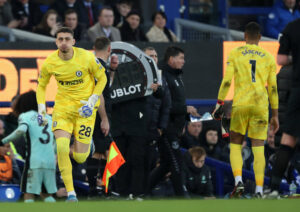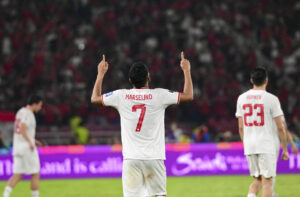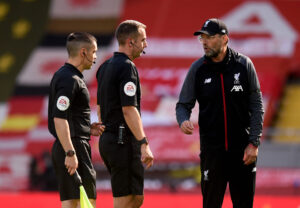Manchester United have displayed the brutal impact of COVID-19 on the world’s largest football clubs today as the quarterly results display. The total net debt has risen by 42% up to an eye-watering £429.1million with the club citing the current pandemic and the economic demise for the financial downturn (Laurie Whitwell, the Athletic).
Manchester United Debt Increases to £429.1 Million
The COVID-19 Effect
On top of searing debt, the club’s revenues have taken a slash. As a result of the lack of games, revenues dropped by 18.7% to £123.7million. Manchester United have not played a fixture since the 5th of March when they thrashed LASK 5-0. The absence of football is having a discernable impact on the club as overall, during Q3, the club made a loss of £3.3million.
There is no doubt that the headline figure is the £429million debt that the club now has. Club officials declared that the pound has weakened against the dollar, making the debt rise in real terms. Executive Vice-Chairman Ed Woodward also added: “‘Operationally, the impact of the pandemic and measures to prevent further spread continues to disrupt its businesses in a number of ways, most significantly in Broadcasting and Matchday operations.”
Broadcast revenues of all Premier League clubs have slashed as they have refunded the Premier League part of their TV deal money. Clubs paid the Premier League around £15million as no games were broadcast in the last eight weeks.
Many are, correctly, worrying about EFL clubs who depend largely on matchday income to survive. However, this latest development shows that clubs up and down the footballing pyramid should be alarmed by the stark impact that the lack of games is having.
A Catastrophic Impact?
All football clubs globally will feel the economic impact of COVID-19. For Manchester United, the impact will most likely be felt in the transfer market. The club manages to spend big money compared to European clubs due to their superior revenue streams which, as mentioned, have taken significant cuts. The longer the absence of games continues means the effect will only worsen. United’s hierarchy will likely be reluctant to throw cash around when incomings are so sparse.
Despite the clear negatives attached to such figures, United believe they can bounce back from the current figures. It is no secret that the club’s sponsorship deals amount to a significant sum of cash. This may be used to help with any cash flow problems there may be.
Manchester United are helping the local community by donating large amounts of money to the NHS throughout the pandemic. These charitable acts display that the financial impact is not at a devastating level. United are one of the richest clubs in the world, after all.
Woodward said: “These actions (in the community) reflect our core values as a club and the resilience through adversity that we have demonstrated many times throughout our long history and will do so again to weather these current challenges.”
The current quarterly accounts do not make pretty reading and signify how devastating COVID-19 is on football. Debt continually rising also displays the mismanagement of the Glazers since 2005. However, football will one day continue, and Manchester United will continue to flourish. The club will view this as a major blow, but with players returning to training this week, the return of Premier League football is ever so slightly closer.
Main Photo






